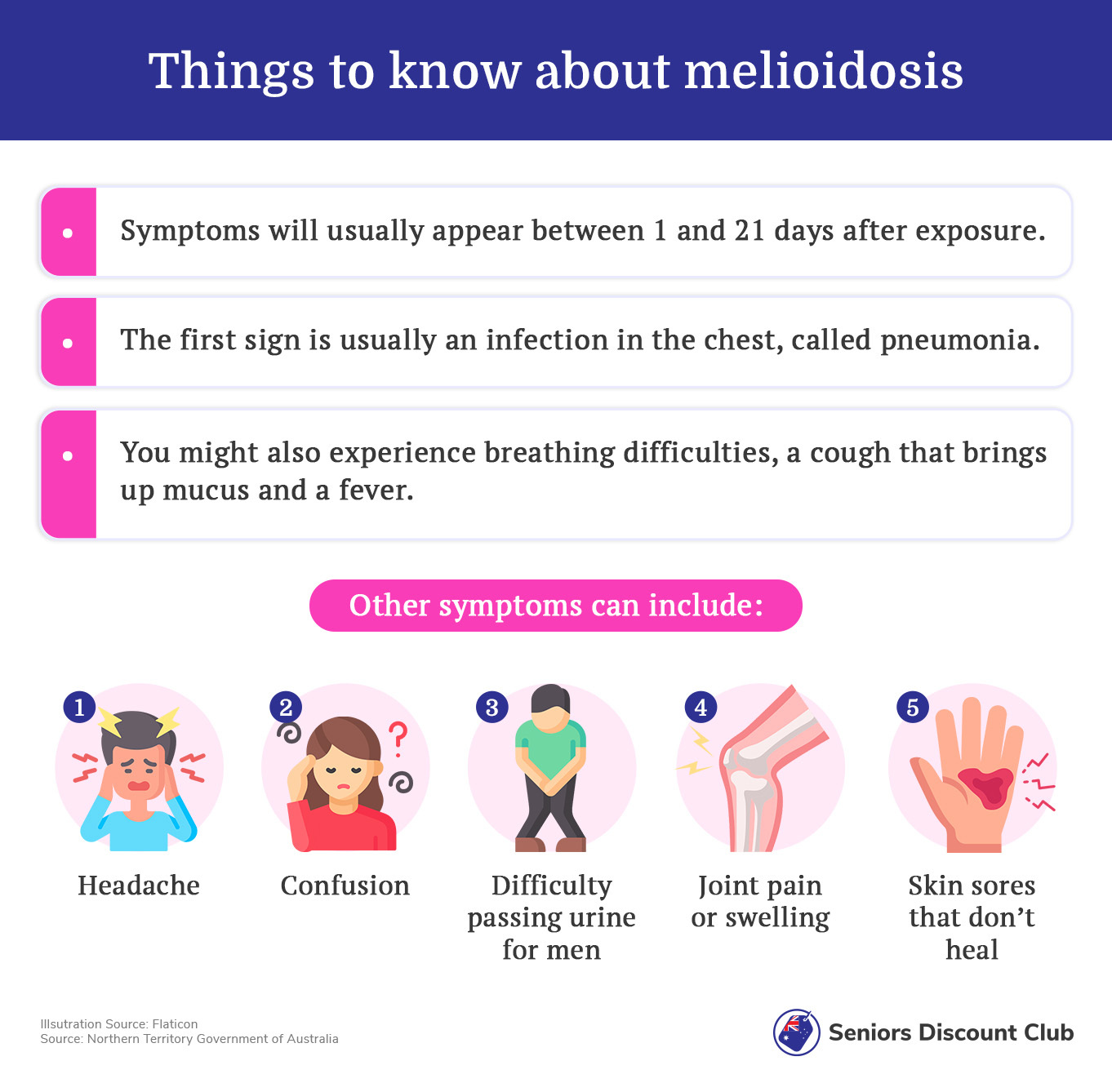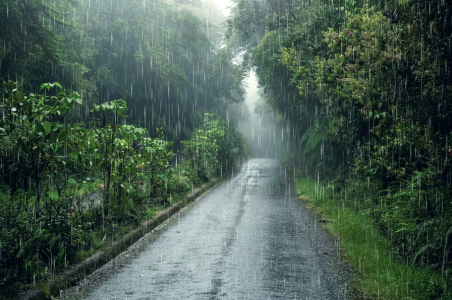Beware: Deadly bacteria lurking during wet season claims two lives
By
VanessaC
- Replies 14
Australia's tropical regions are known for their lush landscapes and abundant rainfall.
However, these same conditions can also give rise to a deadly disease known as melioidosis.
This bacterial infection, found deep in tropical soil and water, has already claimed two lives and infected 22 others in the Top End.
As cases continue to spike, health authorities are urging the public to remain vigilant.
Melioidosis is caused by the bacterium Burkholderia pseudomallei, which thrives in the soil and water of tropical regions.
During periods of heavy rain, the bacteria can rise to the surface, posing a significant risk to people and animals.
The bacteria can enter the body through skin abrasions, inhalation of dust or water droplets, or ingestion of contaminated water.
The Northern Territory Health Department (NT Health) reported that six of the 22 cases of melioidosis since the start of the wet season in October 2023 were diagnosed around late January.
Queensland authorities have also issued warnings to people in flood-affected regions, as the risk of melioidosis infection increases with exposure to contaminated water.
In Queensland, nine confirmed cases of melioidosis have been reported since the beginning of January, a number that Queensland Health has described as unusually high for this time of year.
NT Health has issued a warning that cases are expected to rise, and people living in tropical conditions should become more aware of the symptoms of the illness.
Melioidosis is not a disease to be taken lightly.

'If left untreated, melioidosis can lead to severe pneumonia and blood poisoning, with around 10 per cent of infections leading to death,' NT Health explained.
'Melioidosis most often causes lung infections presenting with fever, cough and shortness of breath but can also affect many variable parts of the body, causing abscesses.'
'Skin sores that don’t heal can be caused by melioidosis bacteria.'
In the Northern Territory, approximately 50 people are diagnosed with melioidosis each year, with most cases occurring between November and April.
However, the October 2022 to April 2023 wet season saw an unusually high number of cases, with 87 people infected and six deaths reported.
Given the severity of melioidosis, it's crucial to take preventative measures, especially if you live in or are visiting tropical regions.
NT Health advises wearing covered waterproof footwear when outdoors and using gloves when working in the garden or other soil-based environments.
Wearing a face mask while using high-pressure hoses around soil and paths can also help prevent inhalation of the bacteria.
If you have any sores or abrasions, wash them thoroughly and cover them with waterproof dressings.
Most importantly, seek medical attention early if you suspect you may have been exposed to the bacteria or if you experience any symptoms of melioidosis.
 Have you or anyone you know been affected by melioidosis? Share your experiences and tips for staying safe in the comments below.
Have you or anyone you know been affected by melioidosis? Share your experiences and tips for staying safe in the comments below.
However, these same conditions can also give rise to a deadly disease known as melioidosis.
This bacterial infection, found deep in tropical soil and water, has already claimed two lives and infected 22 others in the Top End.
As cases continue to spike, health authorities are urging the public to remain vigilant.
Melioidosis is caused by the bacterium Burkholderia pseudomallei, which thrives in the soil and water of tropical regions.
During periods of heavy rain, the bacteria can rise to the surface, posing a significant risk to people and animals.
The bacteria can enter the body through skin abrasions, inhalation of dust or water droplets, or ingestion of contaminated water.
The Northern Territory Health Department (NT Health) reported that six of the 22 cases of melioidosis since the start of the wet season in October 2023 were diagnosed around late January.
Queensland authorities have also issued warnings to people in flood-affected regions, as the risk of melioidosis infection increases with exposure to contaminated water.
In Queensland, nine confirmed cases of melioidosis have been reported since the beginning of January, a number that Queensland Health has described as unusually high for this time of year.
NT Health has issued a warning that cases are expected to rise, and people living in tropical conditions should become more aware of the symptoms of the illness.
Melioidosis is not a disease to be taken lightly.
'If left untreated, melioidosis can lead to severe pneumonia and blood poisoning, with around 10 per cent of infections leading to death,' NT Health explained.
'Melioidosis most often causes lung infections presenting with fever, cough and shortness of breath but can also affect many variable parts of the body, causing abscesses.'
'Skin sores that don’t heal can be caused by melioidosis bacteria.'
In the Northern Territory, approximately 50 people are diagnosed with melioidosis each year, with most cases occurring between November and April.
However, the October 2022 to April 2023 wet season saw an unusually high number of cases, with 87 people infected and six deaths reported.
Given the severity of melioidosis, it's crucial to take preventative measures, especially if you live in or are visiting tropical regions.
NT Health advises wearing covered waterproof footwear when outdoors and using gloves when working in the garden or other soil-based environments.
Wearing a face mask while using high-pressure hoses around soil and paths can also help prevent inhalation of the bacteria.
If you have any sores or abrasions, wash them thoroughly and cover them with waterproof dressings.
Most importantly, seek medical attention early if you suspect you may have been exposed to the bacteria or if you experience any symptoms of melioidosis.
Key Takeaways
- Health authorities in Australia have issued warnings about the rise in cases of the deadly tropical disease melioidosis.
- The disease has resulted in two fatalities and 22 infections in the Top End, with a recent spike in cases following the onset of the wet season.
- Melioidosis is caused by bacteria in tropical soil and water, and people can contract it through contact with infected soil or inhaled dust and water droplets.
- NT Health advises people to take protective measures when working with soil or water, including wearing protective gear and seeking medical attention early for skin abrasions or sores.








